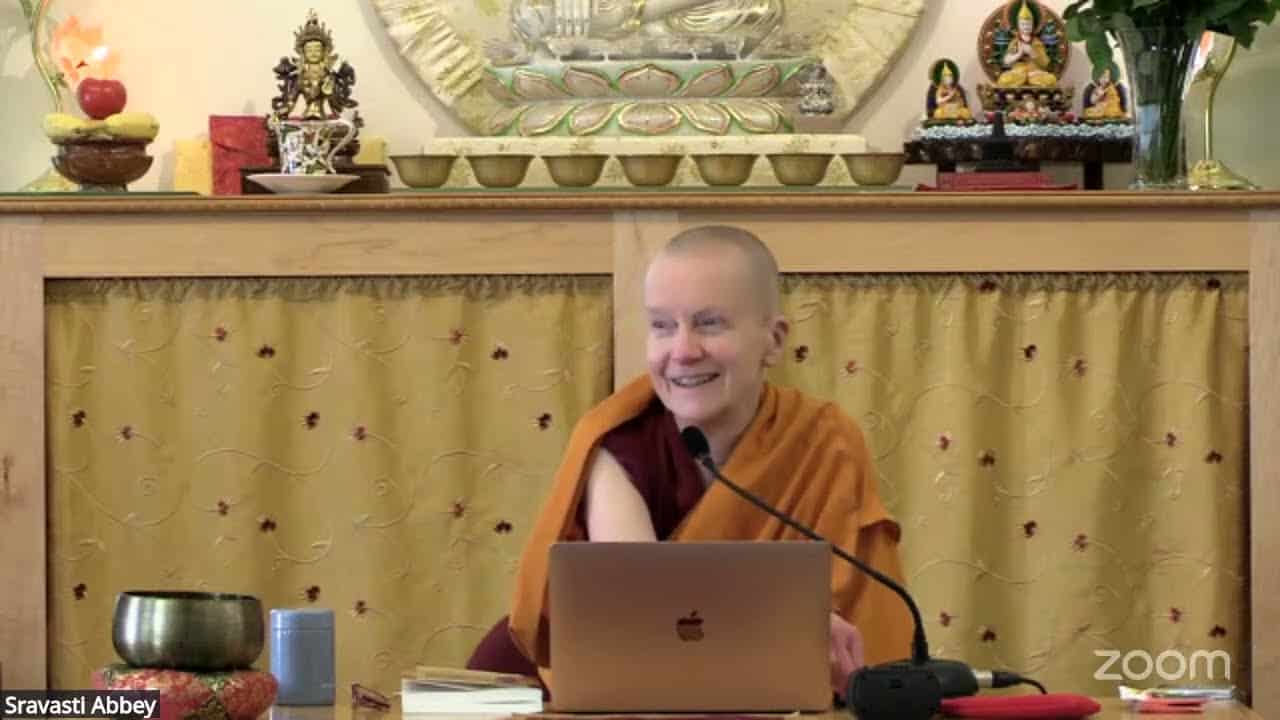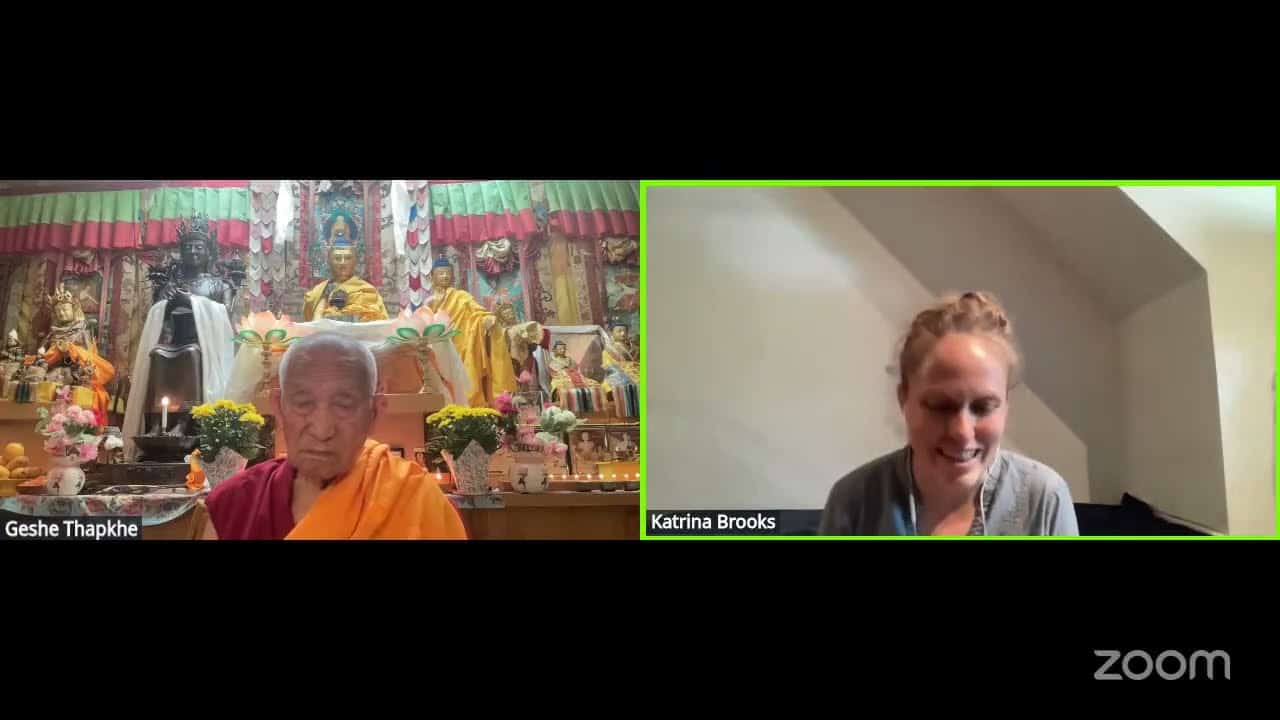Restlessness, regret and deluded doubt
56 Following in the Buddha's Footsteps
Part of an ongoing series of teachings based on the book Following in the Buddha's Footsteps, the fourth volume in The Library of Wisdom and Compassion series by His Holiness the Dalai Lama and Venerable Thubten Chodron.
- Two types of regret
- Purification
- Deluded doubt
- Doubt about one’s own abilities, spiritual mentor and dharma
- Doubt and rebirth
- Ignorance, anger and attachment
- 84,000 afflictions
- Understanding how five hindrances affect concentration and applying the antidotes
56 Restlessness, Regret and Deluded Doubt (download)
Contemplation points
- How can you recognize restlessness and regret in your meditation? How does it hinder concentration? Pinpoint examples of them in your own experience. What is the cause that both arise from and what are the antidotes?
- Think of some situations in which you have had regret, either now or in the past. Take time considering each situation in light of Nagarjuna’s stanzas from the text. How does thinking in this way transform your experience of regret?
- If you feel regret for an offense, having regretted it, put it down and let it go. In this way, the mind abides peacefully and happy. Do not constantly remain attached to it in your thoughts.
- If you possess the two kinds of regret, of having not done what you should have done, or having done what you should not have done, because this regret attaches to the mind, it is the mark of a foolish person.
- It is not the case that, on account of feeling guilty, you will somehow be able to do what you failed to do. All of the ill deeds that you have already committed cannot be caused to become undone.
- What is deluded doubt and how can you identify it in your meditation? How does it interrupt concentration?
- Dig into the three foremost forms of doubt that inhibit serenity. Why are these so detrimental to our spiritual practice and to the attainment of serenity? How have you experienced these in your life? What problems arose? What antidotes help to counter these forms of doubt?
- Doubt that prevents us from trying
- Doubt in our spiritual mentors
- Doubt in Dharma
- Think of some situations in which you have had doubt. Take time considering each situation in light of Nagarjuna’s stanzas from the text. How does thinking in this way transform how you think about doubt?
- Just as when a person stands at a fork in the road and is so confused by doubt that he goes nowhere at all, [when you seek realization of] the true character of phenomena, doubt acts in just the same way.
- Because you remain doubtful, you don’t diligently seek [to realize] the true character of phenomena. This doubt comes forth from confusion. Among all the detrimental [mental factors], it is the worst.
- Although you may possess doubts while abiding in the world, you should still accord with the sublime and virtuous Dharma. Just as when you contemplate a fork in the road, you should follow that path which is most beneficial.
- Spend some time contemplating the benefits of suppressing the five hindrances. How do they inspire your mind to practice? It makes the mind peaceful, responsive, clear, and blissful. It gives us temporary respite from the hindrances.
- Review all five hindrances and for each one contemplate
- What is the meaning of the hindrance?
- How does it interrupt concentration?
- What is the antidote?
- Pinpoint examples of it in your own experience. Which of the five is most troublesome for you?
Venerable Thubten Chodron
Venerable Chodron emphasizes the practical application of Buddha’s teachings in our daily lives and is especially skilled at explaining them in ways easily understood and practiced by Westerners. She is well known for her warm, humorous, and lucid teachings. She was ordained as a Buddhist nun in 1977 by Kyabje Ling Rinpoche in Dharamsala, India, and in 1986 she received bhikshuni (full) ordination in Taiwan. Read her full bio.


